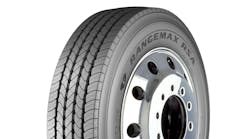Bridgestone Americas and Versalis, a producer in the polymers and elastomers industry, have partnered to develop and deploy a technology package to commercialize guayule in the agricultural, sustainable-rubber and renewable-chemical sectors.
The partnership combines Bridgestone’s position in guayule agriculture and production technologies with Versalis’ commercial-scale process engineering and market development for renewables.
“Every collaboration, including this latest one with Versalis, brings us closer to our goal of developing new, domestic and sustainable sources for natural rubber that ultimately benefit our customers and our natural environment through more sustainable rubber products,” said Nizar Trigui, chief technology officer, Bridgestone Americas. “This work is one of many ways we are using innovation to achieve our long-term vision of manufacturing products from raw materials that are fully renewable and sustainable by 2050 and beyond.”
The agreement will enable Bridgestone and Versalis to focus on developing varieties of guayule using the latest genetic technologies. Through the collaboration, guayule process technologies will be optimized at the Bridgestone Biorubber Process Research Center in Mesa, AZ.
Versalis will lead the product development activities to monetize the guayule rubber production, also for non-rubber components. As for resins, market applications will include adhesives and wood protection while bagasse has shown promising performance as a feedstock for the production of industrial sugars suitable for biofuels or chemical precursors.
“Bridgestone recognizes that realizing a sustainable natural rubber supply chain is a business imperative,” Bridgestone stated. “The industry has acknowledged managing the procurement process as critical, but it is equally important to focus on realizing a sustainable and stable supply of natural rubber or alternative materials, developing long-term productivity improvements, and applying best-in-class technology for natural rubber production.”
“Bridgestone is moving closer to its long-term environmental goal of developing a new, domestic and commercially viable source for natural rubber,” the company added. “This agreement is a significant milestone in Bridgestone’s journey to develop a new and domestic source of natural rubber.”


